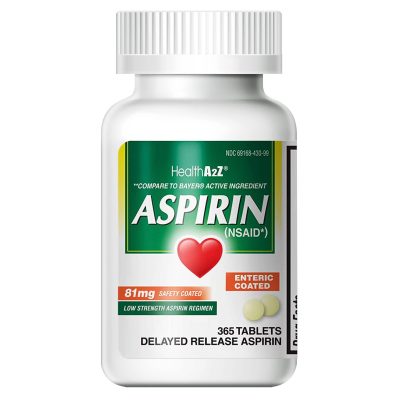What is Antipyretic?
Learn Now: What is Antipyretic?
Table of contents
Generally, antipyretics are used to reduce body temperature, preventing a fever. There are two basic ways to achieve this: by blocking the production of prostaglandins or blocking prostaglandins’ effect on the hypothalamus.
There’s a more than a few stories have been performed to check the consequences of antipyretics on body temperature. Quite often, they have been designed to evaluate the quantitative and qualitative reduction of body temperature after administration of those medicinal drugs.
In most cases, they used small sample sizes, and the studies generally compared the effects of antipyretics on body temperatures.
The primary endpoint of the studies was the decrease in body temperature. During the studies, they were grouped by time after the control of antipyretics. In general, the difference in body temperature between the two groups was more significant water during 1-4 hours after control and smaller at longer intervals.
The mean body temperature of the treated with antipyretics was lower than the mean body temperature of the control group. The data were categorized into three treatment groups: AA, IBU, and DEX.
AA and IBU showed the same temperature-reducing effect as DEX, but they had slightly dishonest timing of onset. Had a start between 30-60 minutes after control. In contrast, a beginning onset is between 60 minutes and a few hours after administration.
IBU is a propionic acid derivative discovered in the 1960s. Generally, it has a short half-life, and its antipyretic effect starts between 30 minutes and 60 minutes after administration.
Types of Antipyretic Pills
Several types of antipyretic pills are used in the treatment of fever. These drugs are administered to reduce fever and reduce discomfort caused by high temperatures.
They also reduce inflammation and pain. These drugs can be given to adults and children alike. They are available in capsules, tablets, suppositories, liquids, and syrup.
Antipyretics reduce fever by blocking the cytokine mediated rise in core temperature. The antipyretics also should be given at regular intervals, and they can be taken up to four times a day. The dosage is determined according to the age of the patient.
Also most drugs have analgesic properties. Among them are Tylenol, ibuprofen (Advil), and paracetamol . These drugs help alleviate discomfort and pain caused by fever.

Some antipyretic drugs have a risk of toxic effects. These drugs should be used only under the supervision of a doctor. The drug also should be administered regularly, and the patient should be informed of the potential adverse effects.
The drug should be given at least four hours after antipyretic other medicines. Patients who have questions about using antipyretic drugs should contact their primary care physician or a pharmacist.
The most commonly used antipyretics include acetaminophen, aspirin, and ibuprofen. Ibuprofen is used as an antipyretic, but it has several side effects. It is safe for children, but infants should not use it. Aspirin is a nonsteroidal anti-inflammatory drug (NSAID). It effectively treats fever in adults, and children can take it.
Most Commonly Known Antipyretic Pills
Antipyretic drugs are prescribed to treat fever. They function by bringing the body’s temperature down, which can assist in alleviating symptoms including headaches, pains, and also chills.
There are numerous antipyretic medications on the market, each with a unique combination of advantages and potential drawbacks. In this post, we’ll examine some of the most popular antipyretic medications in more detail and offer a useful table for quick reference.
Acetaminophen

One of the most used antipyretic medications is acetaminophen, sometimes referred to as paracetamol. It is frequently advised for both children and adults and is generally accessible without a prescription.
It functions by preventing the body from producing prostaglandins, which are also substances that raise the body’s temperature and produce pain. When taken in the authorized doses, acetaminophen is generally regarded as safe, although large doses can harm the liver.
Ibuprofen

Ibuprofen is another another popular antipyretic drug. It is a nonsteroidal anti-inflammatory drug (NSAID) that suppresses prostaglandin synthesis.
Ibuprofen not only lowers fever, but also effectively reduces pain and inflammation. However, if used in high dosages, it can have gastrointestinal side effects such as upset stomach.
Aspirin

An NSAID also called aspirin is frequently taken as an antipyretic medication. It has long been used to lower fever and ease pain because it inhibits the formation of prostaglandins.
But aspirin can have dangerous adverse effects, particularly in kids and teenagers, like the uncommon but potentially fatal illness known as Reye’s syndrome.
Naproxen

Another NSAID that is occasionally taken as an antipyretic medication is naproxen. It is frequently used to reduce pain and inflammation because it acts by preventing the formation of prostaglandins. Nevertheless, naproxen can have gastrointestinal adverse effects like other NSAIDs, particularly if used in large dosages.
Here is a handy table summarizing the key features of each of these antipyretic pills:
| Antipyretic Pill | Mechanism of Action | Recommended Dose | Common Side Effects |
| Acetaminophen | Blocks production of prostaglandins | 325-1000mg every 4-6 hours | Liver damage (at high doses) |
| Ibuprofen | Blocks production of prostaglandins | 200-400mg every 4-6 hours | Stomach upset, gastrointestinal side effects |
| Aspirin | Blocks production of prostaglandins | 325-650mg every 4-6 hours | Reye’s syndrome (in children and teenagers), stomach upset, gastrointestinal side effects |
| Naproxen | Blocks production of prostaglandins | 220-550mg every 12 hours | Stomach upset, gastrointestinal side effects |
Is Tylenol an Antipyretic?
TYLENOL with Acetaminophen is available in chewable tablets, pills, liquid gels, and caplets. It is available in both brand and generic versions. Tylenol is used to treat mild-to-moderate pain and fever. Tylenol is a pain killer that relieves pain by working on the central nervous system.
It is also used to treat minor aches and pains. When used correctly, Tylenol is safe. However, it is essential to take Tylenol only under the advice of a physician. When mishandled, Tylenol can be very dangerous.

Tylenol is mainly used to treat fever. It works on the hypothalamus, a part of the brain that regulates body temperature. When a humans body temperature rises, the hypothalamus sends signals to the body to lower it.
When the body receives these signals, it reduces its temperature to normal. Tylenol is used to reduce fever in children as well as adults.
Tylenol may cause liver damage and should be used with caution. It can also be dangerous when taken in combination with other medications.
Ask your doctor about all of the medicines that you are taking. This will help you avoid any interactions with Tylenol.
If you are taking Tylenol for a fever, follow the directions on the label. Overdose can be dangerous and can even cause liver damage. If you think you have taken too much, seek emergency help immediately.
Tylenol can cause liver damage and may even be dangerous with other drugs. Before taking Tylenol, ask your doctor if you have any liver problems.
Is Aspirin an Antipyretic Drug?
Whether or not aspirin is an antipyretic drug depends on its mode of action. Antipyretic drugs are used to relieve symptoms of fever, such as redness and swelling. They also help reduce the metabolic demands of fever in chronically debilitated patients.
Aspirin is a non-steroidal anti-inflammatory drug (NSAID). It works by preventing the synthesis of prostaglandins, hormone-like substances that cause swelling, redness, heat, and pain.
These hormones are produced by the body’s immune system and are released in the area where an injury occurs.
Aspirin is one of the oldest drugs in the world. It was first used 4,000 years ago by Hippocrates. Today, it is one of the most popular over-the-counter pain relievers.
However, it does carry some risks. In addition to bleeding, it can cause hives and nasal congestion. If you take aspirin , you should tell your doctor if you are pregnant.

If you take aspirin regularly, you may also reduce the risk of getting heart disease and stroke. It can also help prevent clots from forming in your arteries.
It is also used to avoid preeclampsia, which can occur during pregnancy. Aspirin is available in liquid and tablet forms.
The liquid form should be taken with eight to 12 ounces of water. The tablets contain a special coating to ensure the drug enters the bloodstream slowly.
Aspirin is also used as a blood thinner. It can help prevent blood clots in the arteries that may lead to heart attacks and strokes. It can also help prevent cancer, although the benefits of using aspirin may be lost if you do not take it as prescribed.
Final Thought
Fever-preventing antipyretics reduce body temperature. They block prostaglandin production or hypothalamus effects. Most antipyretic investigations have examined body temperature lowering, both quantitatively and qualitatively.
Capsules, tablets, suppositories, liquids, and syrup can be taken up to four times a day. Most antipyretics are acetaminophen, aspirin, and ibuprofen.
Aspirin relieves fever, swelling, redness, heat, and pain, whereas Tylenol treats mild-to-moderate pain, fever, and minor pains. Antipyretic medications must be taken as prescribed, with awareness of negative effects.
You May Also Like
Click for learn more by wikipedia about antipyretics.
FAQ
Commonly used antipyretic medications include acetaminophen (paracetamol) and non-steroidal anti-inflammatory medicines (NSAIDs), such as ibuprofen and aspirin.
Antipyretic drugs work by lowering fever. Acetaminophen (also known as paracetamol), aspirin, ibuprofen, and naproxen are a few examples of antipyretic medications.
It is true that paracetamol, usually referred to as acetaminophen, is an antipyretic medication that is frequently used to lower fever.
Medication that lowers temperature and eases pain are antipyretic and analgesic drugs. Acetaminophen (paracetamol), aspirin, and ibuprofen are a few of these medicines.
Ibuprofen, a non-steroidal anti-inflammatory drug (NSAID) that helps treat pain and reduce inflammation, is also an antipyretic medication.





